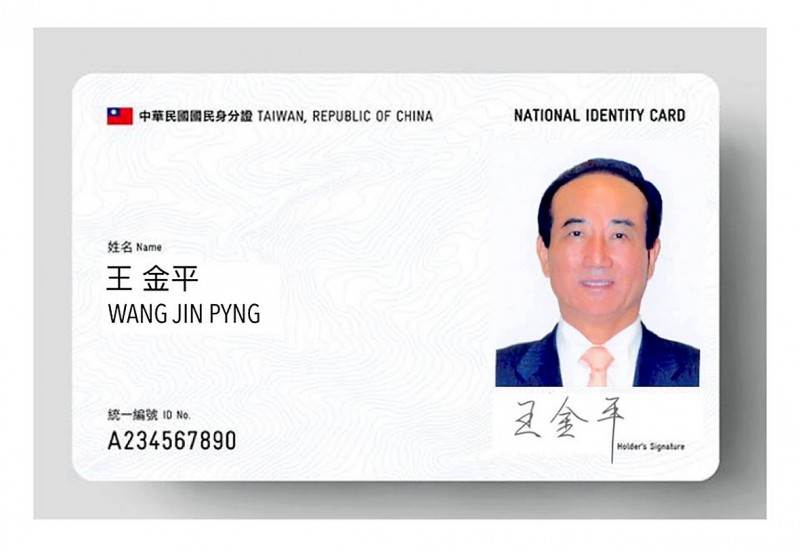《TAIPEI TIMES》 Electronic ID cards to be released in October 2020

A sample design of the new electronic identification card featuring Chinese Nationalist Party (KMT) Legislator Wang Jin-pyng is pictured in a screen grab taken on March 21. Screen grab from Chinese Nationalist Party (KMT) Legislator Wang Jin-pyng’s Facebook page
DIGITAL REVOLUTION: Once cardholders activate the features, their new ID cards would include their driver’s license and National Health Insurance information
/ Staff writer, with CNA
The government in October next year is expected to launch electronic identification cards (eID) that combine the functions of existing national ID cards and Citizen Digital Certificates, which people use to file their taxes online, the Ministry of the Interior said yesterday.
The ministry is to complete the initial plan for issuing the cards in July and would share a more detailed plan, including the card’s design, in September, Minister of the Interior Hsu Kuo-yung (徐國勇) said.
The cards would integrate information from National Health Insurance cards and driver’s licenses, once cardholders activate the features, Hsu added.
The budget for establishing digital infrastructure and foundation services could require NT$4 billion (US$128.35 million), pending the Cabinet’s approval, the ministry said in a report submitted to the Legislative Yuan on Wednesday.
The new cards would be physical and virtual proof of identification; would allow digital signatures, privacy protection, autonomy of information disclosure; help with the transition to a “smart” government; have anti-counterfeit facilities; and would boost innovative applications and industry development, the report said.
Turning to security and privacy issues, the ministry said the cards could be used as proof of identity rather than as a device to store personal data, and therefore would not encroach on personal privacy.
The eID would contain less personal data than the current version, would be harder to counterfeit and would be equipped with the top-of-the-range identification technology to prevent information theft, the report said.
Cardholders would be able to access databases from various government agencies and public institutions, such as the National Health Insurance Administration.
The cards would also show cardholders’ marital status simply as “married” or “single,” but the name of their spouse would be stored on the card’s chip, a ministry official said at a legislative hearing yesterday.
新聞來源:TAIPEI TIMES
%http://www.taipeitimes.com/













